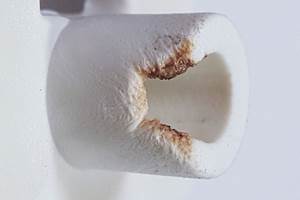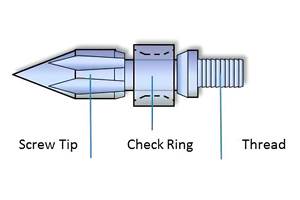‘Intelligent’ Cooling Helps Molder Improve Productivity, Profitability & Quality
Cost-effective and user-friendly process-cooling system gives custom molder the ability to do more with less.
Founded in 2015, CH3 Solutions is a “proven startup,” committed to the “pursuit of doing things better” in all aspects of its business. When relocating in 2016 to a 90,000 ft2 facility in Dalton, Ga., to accommodate rapid growth, the custom injection molder decided to implement a better approach to process cooling. It had three main goals:
1. Gain control over cooling-water temperatures and flow rates when producing millions of high-quality floor tiles per year. Traditional process cooling made it difficult to produce smooth, flat tiles with consistent coloration.
2. Maximize operational efficiencies and improve profit margins, dictating reductions in energy, maintenance and chemical treatment costs.
3. Minimize water waste, improving its ecological footprint. As a small business, CH3 Solutions required a cost-effective and user-friendly process-cooling system that would allow it to do more with less. The cooling system also needed to run with maximum uptime to ensure peak productivity and ongoing customer satisfaction. After reviewing options and cost-benefit analyses, CH3 Solutions chose to implement the Intelligent Process Cooling system from Frigel North America, E. Dundee, Ill.
Frigel’s scientific approach to process cooling included a detailed assessment of CH3 Solutions’ processes and unique molds, paying attention to the method used to produce floor tiles. The cooling-system supplier also considered the molder’s rapid growth.
From there, it custom-designed and installed a system offering:
• Better central cooling: An Ecodry 3DK closed-loop adiabatic central cooler efficiently and cost-effectively delivers clean cooling water to machine-side units at each production cell. The Ecodry unit reuses water, which drastically reduces water consumption compared with an open-cooling tower. It also allows free cooling during cooler months of the year, saving energy.
• Precise machine-side temperature control: Seven Microgel Chiller/TCUs and one Turbogel TCU provide the required temperature, pressure and turbulent flow to each individual process and mold. In all, CH3 Solutions operates eight production cells.
• Control system with remote monitoring service: When needed, Frigel’s technical experts can remotely assist with cooling challenging molds and manage a wide array of system parameters to ensure peak performance.
The modular Ecodry central cooler features a single set of pipes and a bolt-on pumping system, allowing for easy system expansion. In addition, CH3 Solutions can add compact, mobile Microgel units to new production cells as production capacity expands. CH3 Solutions’ thorough analyses of process-cooling systems paid off. The Frigel Intelligent Process Cooling system quickly demonstrated the ability to help the company achieve production and business goals with less water use, lower energy consumption, reduced chemicals use and costs, faster mold changeovers, and less need for routine maintenance. The system also provided the molder with a way to overcome the challenge of consistently producing high-quality floor tiles in large volumes, further enhancing its reputation as an industry leader.
Says Rodney Davenport, CH3 Solutions v.p., “As a technology-driven company, we wanted more out of process cooling. We also strive to eliminate waste in every aspect of our business. We chose Frigel for process cooling. For us, it’s been awesome, and we plan to be partners with Frigel for years to come.”
Related Content
What to Look for in High-Speed Automation for Pipette Production
Automation is a must-have for molders of pipettes. Make sure your supplier provides assurances of throughput and output, manpower utilization, floor space consumption and payback period.
Read MoreBack to Basics on Mold Venting (Part 1)
Here’s what you need to know to improve the quality of your parts and to protect your molds.
Read MoreIs There a More Accurate Means to Calculate Tonnage?
Molders have long used the projected area of the parts and runner to guesstimate how much tonnage is required to mold a part without flash, but there’s a more precise methodology.
Read MoreGot Streaks or Black Specs? Here’s How to Find and Fix Them
Determining the source of streaking or contamination in your molded parts is a critical step in perfecting your purging procedures ultimately saving you time and money.
Read MoreRead Next
Making the Circular Economy a Reality
Driven by brand owner demands and new worldwide legislation, the entire supply chain is working toward the shift to circularity, with some evidence the circular economy has already begun.
Read MoreFor PLASTICS' CEO Seaholm, NPE to Shine Light on Sustainability Successes
With advocacy, communication and sustainability as three main pillars, Seaholm leads a trade association to NPE that ‘is more active today than we have ever been.’
Read More




















